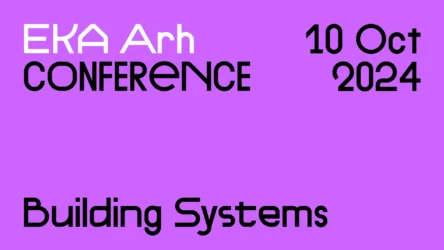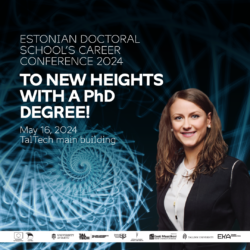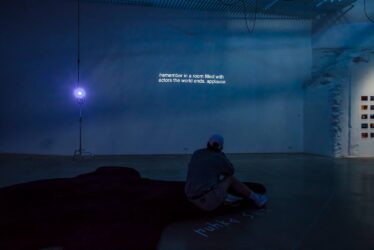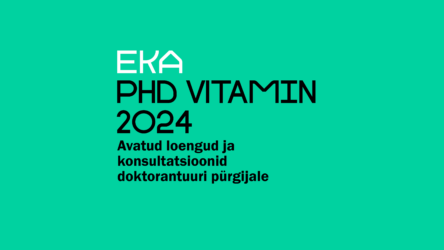On March 4th and 5th, the PhD Vitamin event will once again be hosted at the Estonian Academy of Arts.
PhD Vitamin aims to support and pave the way – and inspire artists with a research approach on their way to doctoral studies. The goal is to introduce artistic research and advise potential candidates for postgraduate studies in planning a doctoral thesis project. In a program consisting of public lectures and one-on-one consultations, artists and experts discuss their approach to artistic research and share individual advice.
This year’s conference will focus on the problem of public space and its art. How can we decide what would be visible to all?
How do ethical challenges, the responsibility of the artist, historical and political issues and the authorship rights intertwine? What are the possibilities for artists to contribute to shaping past-present-future through the political aesthetics of public space? During the ongoing war in Ukraine, questions of what to do with the ‘red monuments’ left in the public space have come to the fore in Estonia. The debate is part of a global discourse that includes the Black Lives Matter movement. It touches on our social environment and tests our ability to ‘be good’.
Artists, designers, alumni of EKA and other creative universities, and graduate students interested in artistic research methods are invited to participate.
PROGRAMME
March 4th, Monday, room A501
10:00 -10:30 Coffee and welcome
10:30 -11:15 Victoria Fareld “Responsibility in a Polychronic Present”
11:15 -11:45 Kristina Norman “Looking Back at After-War (2009) During the War”
Lunch break
12:30-13:15 Esther Shalev-Gerz “From the Monument Against Fascism to The Shadow”
13:15-13:45 Gregor Taul “Monumental Trouble”
Coffee break
14.00-14:45 Moderated discussion: Victoria Fareld, Esther Shalev-Gerz, Gregor Taul, Kristina Norman, moderator Kirke Kangro.
March 5th, Tuesday, room A501
10:00-12:00 Individual consultations with Victoria Fareld and Esther Shalev-Gerz
SPEAKERS
Esther Shalev-Gerz, based in Paris, is internationally recognized for her seminal contributions to the field of art in the public realm and her consistent investigation into the construction of memory, history, the natural world, democracy and cultural identities. Her works challenge the notion and practice of portraiture and consider how its qualities may contribute to contemporary discourse about the politics of representation. Her monuments, installations, photography, video and public sculpture are developed through active dialogue, consultation and negotiation with people whose participation provides an emphasis to their individual and collective memories, accounts, opinions and experiences which then become both represented and considered.
Victoria Fareld is professor of intellectual history at Stockholm university in Sweden. Her research revolves around questions of historical guilt, responsibility and historical temporalities.
Gregor Taul is a lecturer, critic and curator. He has studied semiotics at Tartu University and art history at the Estonian Academy of Arts and is about to defend his PhD thesis on art in public space in the Baltics. He is currently working as a lecturer at the General Theory and Interior Architecture departments at EKA.
Kristina Norman, based in Tallinn, is an artist whose interdisciplinary work includes video installations, sculpture, and projects in the city space, as well as documentaries and performance. She is interested in the issues of collective memory and forgetting, the memorial uses of the public space, but also the subtle sphere of the body politics that transgresses the boundaries between the public and the private. In 2009 she represented Estonia at the 53rd International Art Exhibition – La Biennale di Venezia with a solo project, a multilayered mixed media installation After-War. The project was a study of a conflict around the relocation of a Soviet monument in Tallinn. In 2022 Norman represented Estonia at the 59th Venice Biennial within an ecocritical exhibition Orchidelirium. An Appetite For Abundance. Norman’s experimental film trilogy commissioned for the Pavilion, offers multiple ways to reflect on the legacies of colonialism from a specific Eastern European perspective.
The event will be held in English.
Please registrate through following LINK.
To participate in individual consultation to discuss your PhD proposal, please fill out the FORM. A detailed consultation schedule will be sent to your email after registration. Be quick – the number of participants in consultations is limited!
Additional info: kati.saarits@artun.ee





